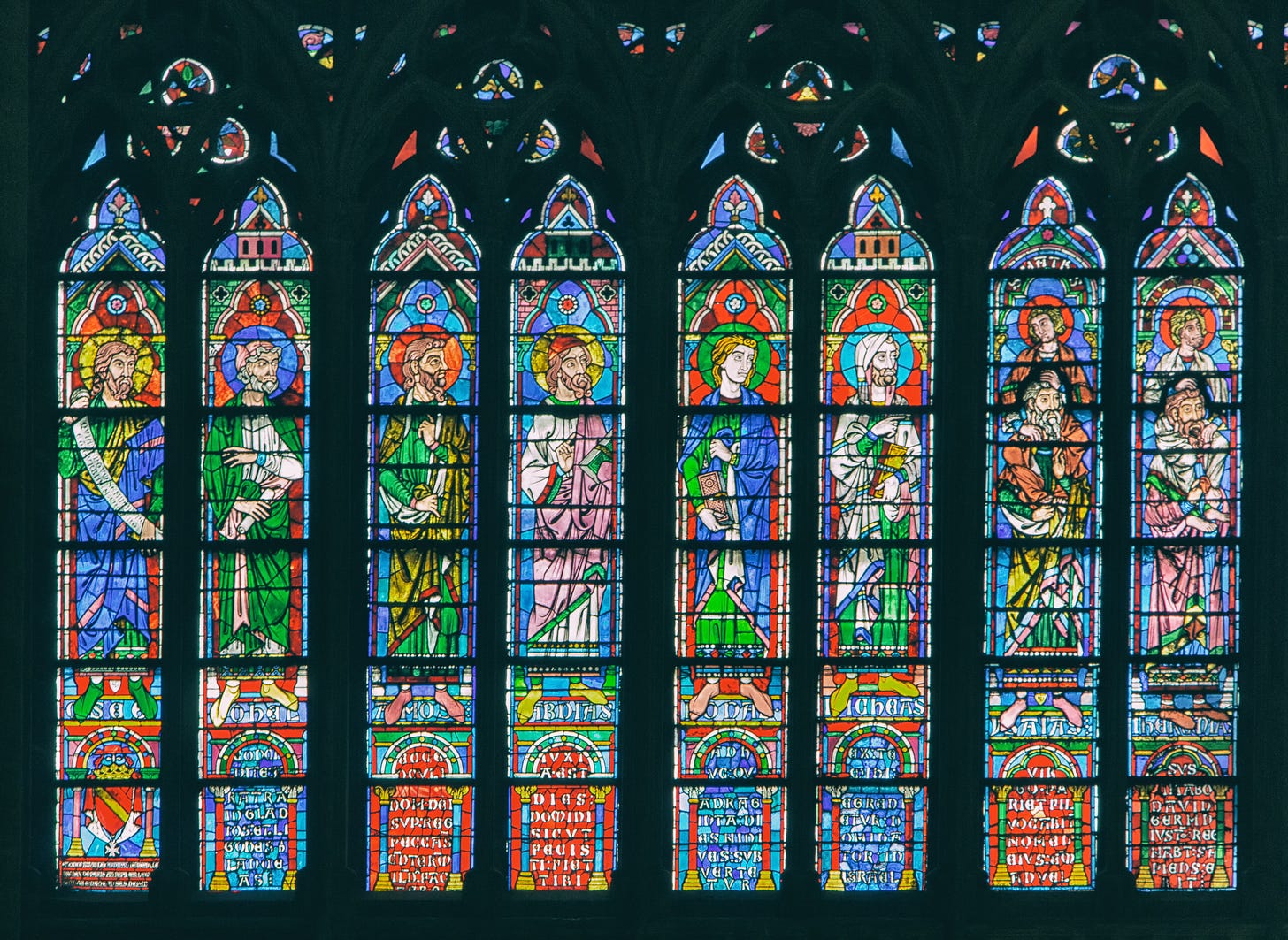
This weekend I, along with Christians across the world, joined together in celebrating Christ’s resurrection on Easter Sunday.
Yet, as I mentioned last month, the pursuit of finding a church home over the past year has been difficult and discouraging. Finding a home as a brown, Indian body in a predominantly white evangelical world is not an easy task. Given this, returning to the megachurch I was raised in and deeply formed by for much of my youth came with mixed emotions.
While much of the Easter service was well enough, what stood out to me was one specific song that offered a revised version of the Lord’s Prayer (Matthew 6). The opening lyrics mirrored Jesus’ words— “Father let your Kingdom come…let your will be done on earth as in heaven.”
But, added to this familiar stanza was an extra line: “Right here in my heart”
I don’t know who wrote these lyrics. Maybe it is a popular CCM song, maybe the worship leader wrote it for the congregation, or maybe it is a deep cut from an indie artist. Whoever it was, I am sure their intention was to make the Lord’s prayer personal and meaningful.
But, I think that’s where the problem lies for me—that, in order to make the Lord’s Prayer personal and significant, we must make it about us. A recent article by Bob Smienta in Religion News Service highlights this trend in contemporary worship music. In the piece, Smienta quotes Shannan Baker, a postdoctoral fellow at Baylor University, saying, “A lot of it is, what is God doing for me now? And what has God promised to do for me in the future?”
The lack of any conjunction (like “and”) in this revised version, I believe, implies that the songwriter imagines the location of this “on earth and in heaven” action as taking place in the individual heart rather than the world around us. Otherwise, there would be no need to change the lyrics at all; “on earth as it is in heaven” would suffice.
At this point, I imagine some readers might contest my premise: “Does it really matter that this line was added?” “Why am I nitpicking over a few words?” “This is just another semantic argument!”
To be sure, there are plenty of places in Scripture that talk about the internal transformation of our souls. We are inwardly renewed (2 Corinthians 4), our hearts are called to believe in Christ (Romans 10), our minds are renewed (Romans 12), the fruit of the Spirit is borne within us (Galatians 5), and we are nourished by the wellspring of eternal life (John 4).
But when Jesus says that we ought to pray for God’s kingdom to come and for God’s will to be done “on earth as it is in heaven,” he wasn’t pointing at us, he was pointing out into the world. The Lord’s Prayer is not primarily calling us into ourselves. Its commands are outward facing: forgive us as we forgive those who have trespassed against us, deliver us out of evil and temptation.
At best, when we stipulate the Lord’s prayer with a conjunction-less addendum like “right here in my heart,” we turn our attention away from the social, communal, and political ramifications of the Lord’s prayer. At worst, we trade these consequences for our continued self-interest and individualistic faith.
While much more could be said about how Christians have viewed the significance of the Kingdom of God what is key to me here is that when we talk about the Kingdom of God, we are inherently talking about the social and the political. As Christians, when we proclaim that Jesus is Lord and pray for the Kingdom of God to come to us, we are making a claim about how the world ought to be. Christ’s kingship is about more than our hearts—it is about the transformation of our communities towards (as I often say in this newsletter) a common good marked by the radical practice of neighbor love.
Is it wrong to sing this song in church on Sunday? No, I don’t think so. Am I being overly critical about a simple worship song? Probably. But I think it is worth thinking deeply about these things. What we say (and sing) matters. Our words, especially when they are put to music, form us as followers of Jesus. When we only sing about what God will do for us, we will soon lose sight of the community God has placed us in.
So, while it may not go as well with music, this is what I am praying for this week:
Father let your kingdom come and will be done on earth as it is heaven by making anew the broken and partial systems of our nation, healing the division between neighbors, ridding our communities of violence and bloodshed, providing for those without shelter, forming the church in the way of Jesus, and giving us the ability to love our neighbors and even our enemies.
Reading:
Eric Barreto and Willie Jennings, “Belonging” in The Presbyterian Outlook
Yi Ning Chiu, “The Church Failed You. Now What? in
Watching:
BEEF (Netflix)
Jury Duty (Amazon - Freevee)





I agree that the evangelical branch of Christianity focuses too much on the individual and not enough on the community . Tradition has a story that when John the evangelist preached he simply said, "My children, love one another." Frank
I'm shocked by how bad that "right here in my heart" is